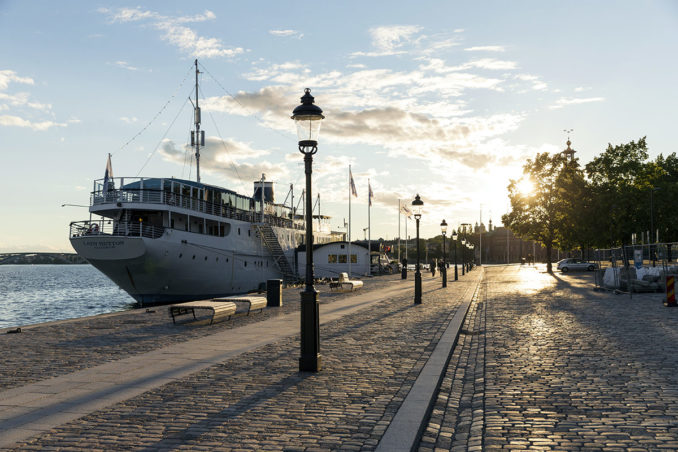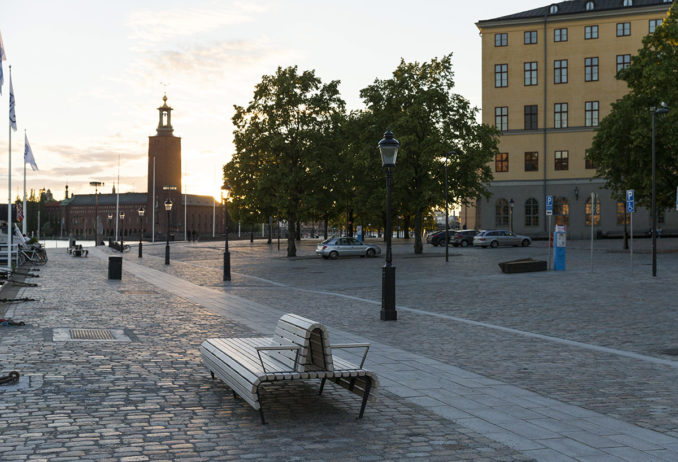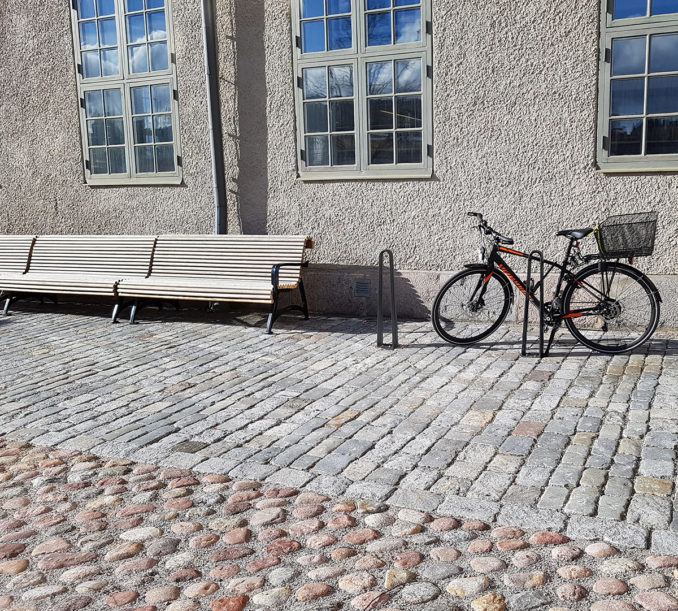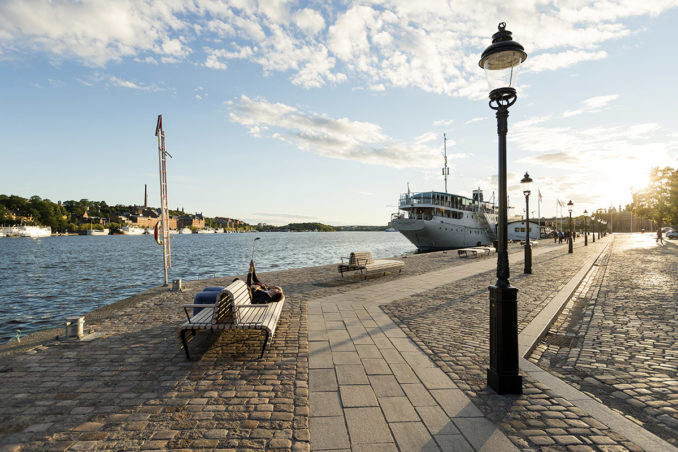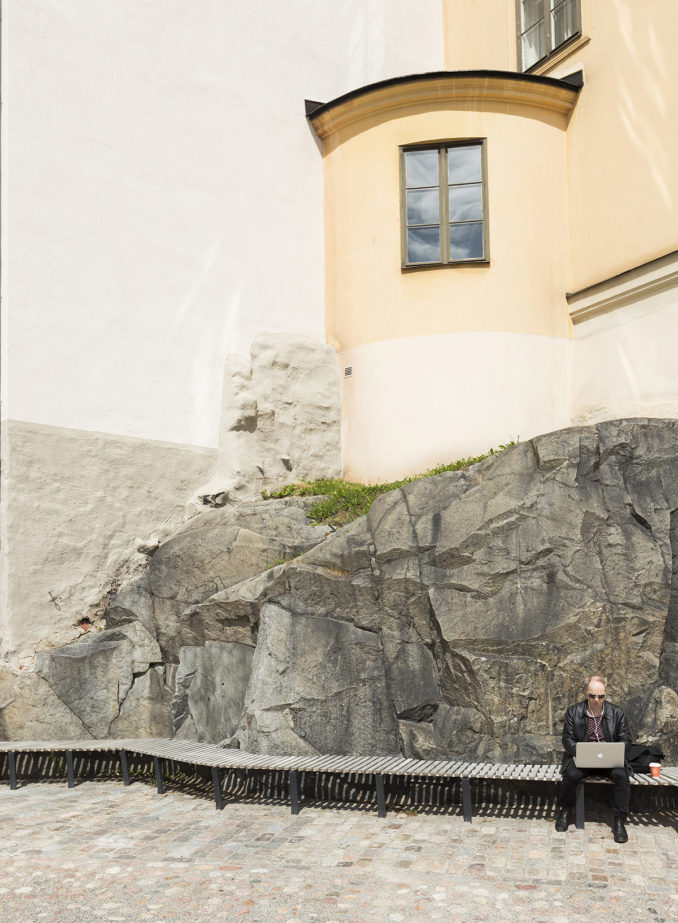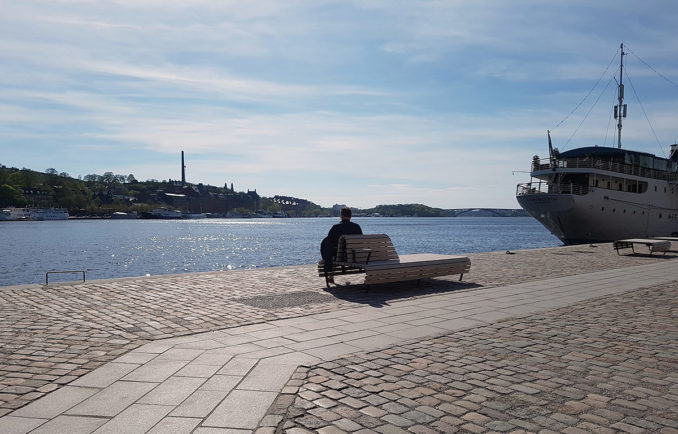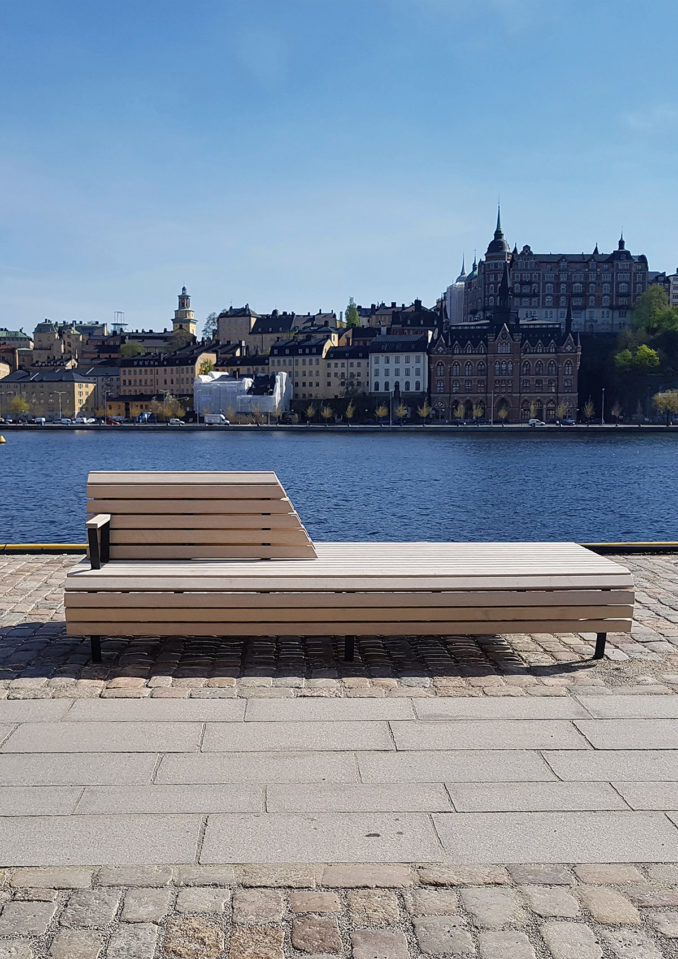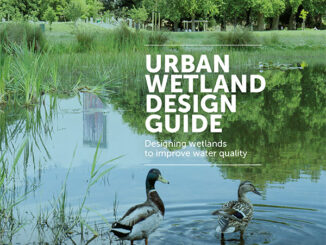Riddarholmen is owned and managed by Statens Fastighetsverk (The National Property Board of Sweden), which plans to renew and develop all of the island’s public space to make it more attractive and accessible. Overall, Riddarholmen is interesting from a cultural history point of view and holds great antiquarian values that need to be respected and taken care of. It’s been central in the project to find a way to renew and renovate the island in order to meet contemporary requirements for function while throughout respecting its historical values. The project Södra Riddarholmen is the first part of the island’s public spaces to be completed.
When standing by the quays of Riddarholmen, the scenery of the water and the magical view of Stockholm is striking. Key conditions in the design have been to create large areas for walking and sitting down along the waterfront, and to manage the old paving while preserving the atmosphere of an open harbor. By letting the open space follow the direction of the waterfront, in the same way, the old quay did, we created an overall solution with flexible use of the public space. The large open spaces can be used for different kinds of events, as well as for parking cars and buses. The design also allowed the quays to be widened, and more space was created near the historical buildings. The docks may also be used to moor ships, both liner vessels and charter ships.
Water always creates attractive spots for seating. The benches of Södra Riddarholmen are specifically designed for the location and are made of the King’s oaks from Visingsö, an island located in Sweden’s second largest lake Vättern. The spacious and unrestricted areas close to the historical buildings of Riddarholmen provide good conditions to experience the buildings. The triangular places formed between the buildings are sheltered, south facing, quiet areas to meet and socialize. At these locations, you find comfortable benches along the façade of Kammarrättens Hus, and a custom-built bench that follows the mountain foot between Kammarrättens hus and Västra Gymnasiehuset.
Historically at Riddarholmen, the areas closest to the buildings used to be open and empty – coated in different kinds of cobblestone, all natural stone such as granite. The new cobblestone areas are placed where people rarely walk because of their uneven surfaces. The cobbles are traditionally placed in rows. The stones vary in size and create a quiet but interesting and beautiful surface. The natural stone paving of the square is located in both pedestrian- and traffic areas. Areas with different functions are defined by differently coloured stones and by the use of different pitching techniques on the surface of the stone. Most of the material consists of recycled old paving that has been found on location, buried in the ground. Characteristic, square, “horse-stones” mark important junctions, and there is a wheelchair accessible passage with a paving of smooth surfaced flagstones of different sizes, that creates additional variety in the paved surfaces.
The trees on the quays were planted in the 1960’s and are now large, impressive trees. They contribute in giving the visitor a positive experience of the area and they soften the impression of the parking lot. A few new trees have been added. They give the spot added shelter and divide it into smaller spaces.
Riddarholmen
Landscape Architect | AJ Landskap
Location | Riddarholmen, Stockholm, Sweden
Images | Kasper Dudzik


